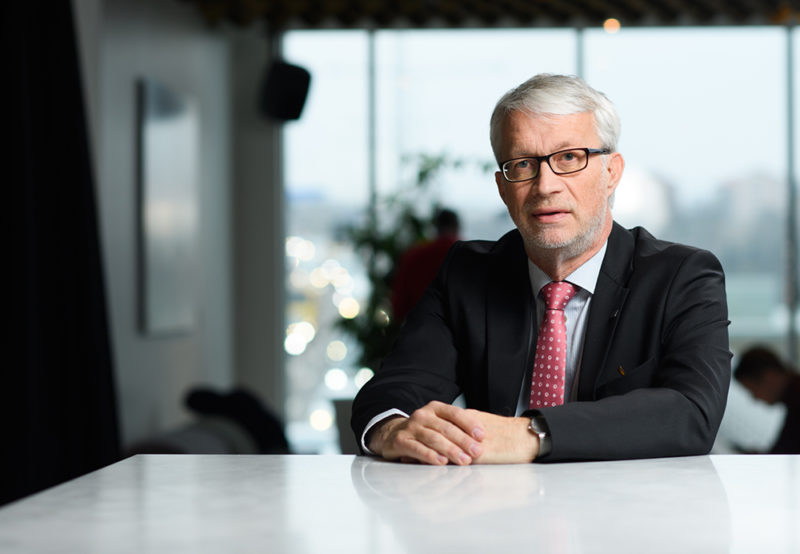The government is passing the buck and putting up a smokescreen

In its Research Bill, the government declared that it was important to increase the proportion of foreign doctoral candidates who stay in Sweden after graduation and that “it is important to create conditions for both recruiting and retaining the skills this group possesses”. Nice words, because we undeniably need more cutting-edge competence, not only at higher education institutions but also in those parts of the corporate sector that are future-facing. We simply cannot afford to lose competence.
But according to the new Aliens Act, researchers have to go. The requirements set out in the Act regarding financial support are not possible for either newly qualified PhDs or junior researchers to fulfil. And we are not talking about just a fraction of them: 40 per cent of doctoral candidates and 75 per cent of people in career-development positions are from abroad. Even though some of them probably come from countries within the EU/EEA, the vast majority of foreign doctoral candidates and the majority of junior researchers are affected by the new law.
We would love to believe that this is a mistake on the part of the government; that in their zeal to pursue the most restrictive immigration policy, they simply forgot about researchers. That would not be illogical. The likelihood that the Ministry of Justice knows what the employment conditions of young researchers are like is not great.
If you look at the basis for the change in the law, a report entitled A Long-term Sustainable Migration Policy (SOU 2020: 54), you might assume that this is the case. The headings in the report reveal its focus: they deal with asylum (Chapter 4), immigration of relatives (Chapters 8 and 9), humanitarian reasons (Chapter 10) and others in need of protection (Chapter 11). The 684 pages mention labour immigration 30 times, researchers 17 times and doctorates once, namely in a quote from the legislation on guest researchers. The risk of brain drain receives a single paragraph, where it is stated that Sweden's attractiveness could “perhaps decrease somewhat”.
One might think that experts in other ministries - Education, Enterprise and the Labour Market - should be familiar with the situation for researchers and the business sector’s and the labour market's need for highly skilled employees, and that they had objections to the report and the Bill. But there is no evidence that they reacted.
Those who did react were some of the consultation bodies. In a sharply worded consultation response, SULF pointed out that the Bill will lead to a brain drain because the requirements regarding means of financial support will be difficult to meet, and we highlighted in particular the many postdocs who are funded by scholarships. SULF has always been critical of scholarship funding of work, but now the situation for those on scholarships is even worse because they cannot show that they have sufficient income to support themselves.
When the Bill became law, the research community reacted powerfully. For those of us in the higher education sector, it is obvious what the consequences will be. Eventually, both the ministers responsible, Matilda Ernkrans and Morgan Johansson, issued statements. Both say, with slightly different wording, that employers must ensure that employment is secure.
Neither seems to have any facts about the issue. Doctoral candidate employment is not regulated by collective agreements between the employers and the trade unions, but in the Higher Education Ordinance, which is in the hands of the government. Employment is for four years because that is the length of the doctoral programme. But to apply for a permanent residence permit, you must have been in the country for more than four years and have a guaranteed income for the coming 18 months. Which newly qualified PhD has that?
The responsibility for the effects of this legislation lies with the government, not only because the law is worded so that it is not suitable for doctoral candidates, but also because too much research is funded through research council grants.
It's time to rethink this legislation and do it right instead of putting up smokescreens and passing the buck.
Mats Ericson
President of SULF
This opinion piece can be found in Swedish in the SULF members’ magazine Universitetsläraren, issue 6, 2021
